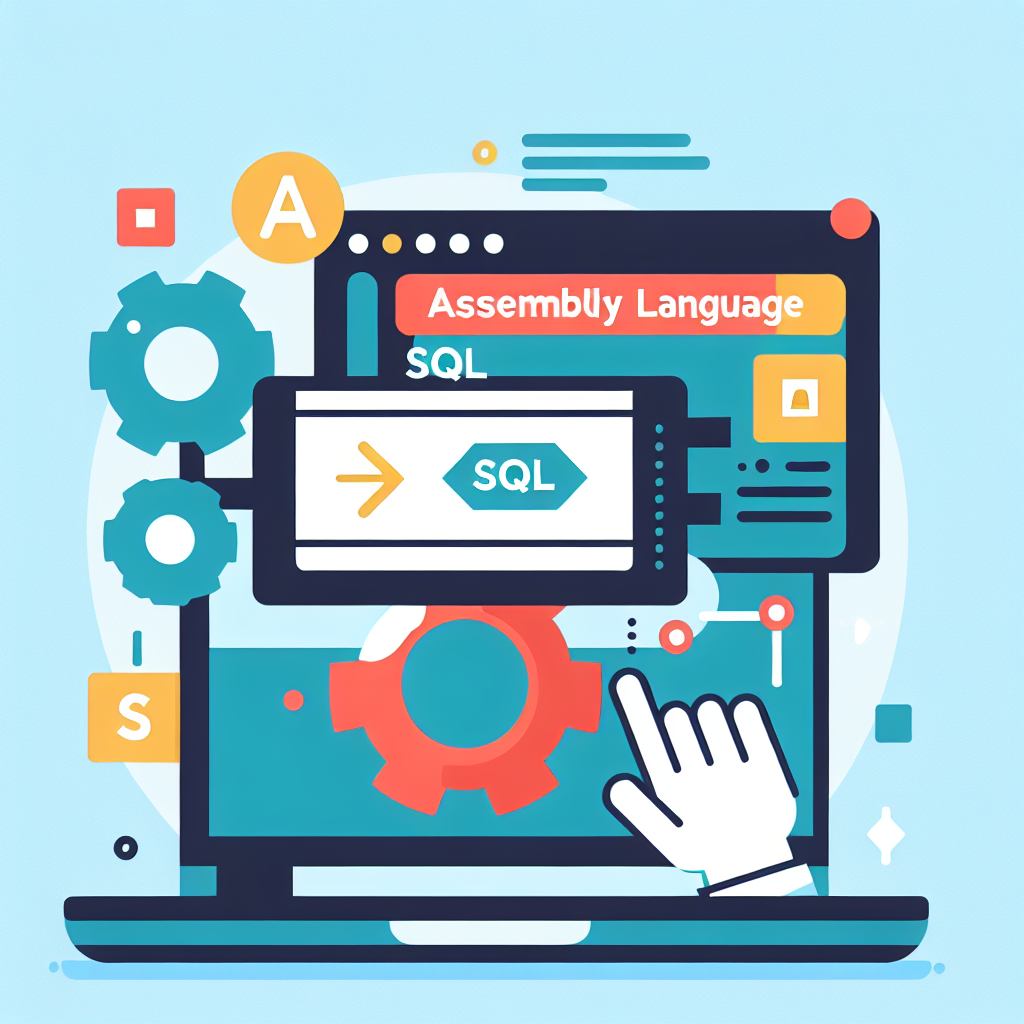Convert Assembly Language to SQL: Efficient Tool Online
Unlock seamless data conversion with our Assembly Language to SQL tool. Effortlessly translate code for optimized database management. Try it now!
Source Code
Converted Code
Output will appear here...
Transform complex assembly language code into efficient SQL queries with our cutting-edge tool. Ideal for developers and database administrators, it streamlines data manipulation, enhances performance, and ensures seamless integration between low-level programming and database management. Optimize your workflow and improve data accessibility today.

Assembly Language to SQL Conversion Tool Link to this section #
Efficiently converting assembly language to SQL can streamline database operations and enhance system performance. This powerful tool is designed for developers and database administrators seeking to bridge the gap between low-level and high-level programming.
Key Features: Link to this section #
- Automated Conversion: Translates fundamental assembly instructions into optimized SQL queries.
- Syntax Highlighting: Offers clear differentiation of SQL commands and structures.
- Error Detection: Identifies and suggests corrections for potential conversion errors.
Use Cases: Link to this section #
- Database Optimization: Transforming assembly code into SQL can optimize data retrieval and manipulation.
- Legacy System Integration: Facilitates the integration of older systems with modern databases.
Example Conversion: Link to this section #
Assembly Code: Link to this section #
MOV AX, 5
ADD AX, 10
Converted SQL: Link to this section #
SELECT 5 + 10 AS Result;
Benefits: Link to this section #
- Increased Efficiency: Automates repetitive and error-prone manual conversion.
- Enhanced Compatibility: Ensures legacy systems are compatible with contemporary SQL databases.
- Resource Optimization: Reduces the need for extensive system resources by optimizing queries.
Related Topics: Link to this section #
- Programming Language Translation: Understanding how different languages can be translated and the nuances involved.
- SQL Optimization Techniques: Exploring ways to improve SQL query performance. Learn more about SQL optimization.
For more information on assembly language and its applications, refer to IBM's Assembly Language Documentation.
This tool is an invaluable resource for professionals looking to enhance their database management capabilities with precise and efficient code translations.
Frequently Asked Questions
What is the relationship between assembly language and SQL?
Assembly language and SQL serve very different purposes in computing. Assembly language is a low-level programming language used for direct hardware manipulation, typically within a specific processor architecture. In contrast, SQL (Structured Query Language) is a high-level language used for managing and querying relational databases. While they do not directly interact, both are crucial for different layers of software development.
Can assembly language be used to interact with SQL databases?
Directly using assembly language to interact with SQL databases is uncommon and impractical due to the complexity involved. Typically, high-level programming languages like C, C++, Java, or Python are used to interact with SQL databases, possibly leveraging libraries or APIs that provide the necessary abstraction and connectivity, making it easier to execute SQL queries.
Is there a need to convert assembly language code to SQL?
There is no direct need or standard practice for converting assembly language code to SQL, as they address different aspects of computing. Assembly language is used for low-level system programming, whereas SQL is used for database management. However, applications written in assembly might call high-level language routines that, in turn, use SQL to interact with databases, but this would typically be handled by the higher-level language rather than assembly itself.